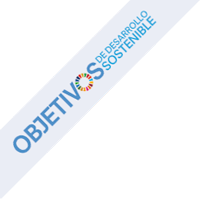
In their article “The Dynamics behind the Likelihood of Adopting Inclusive Agrarian Innovations in Disadvantaged Central American Communities“, researchers from the Marketing for Society group at Loyola University, Rafael Araque and Maria José Montero, address the functioning of innovation adoption processes in poor agrarian contexts, examining the main factors that influence the probability of accepting a new product and their interrelationships in a Central American community.
The focus on small producers broadens the study perspective and shows how the dynamics of influence need not be similar to those of large producers, the most common approach in innovation studies. Thus, it highlights the need to contextualize research on diffusion and adoption processes in disadvantaged communities.
The results provide an overview of what may be happening in the agricultural sector in Honduras and, by extension of cultural similarity, in other Central American countries. These results underscore the idea that the entrepreneur’s relationship with innovation is a dynamic reality in which the likelihood of acceptance is the result of a combination of cultural, individual, institutional and organizational factors.
A more systemic analysis approach to the actors and processes involved in a given context helps to increase the probability of adoption. This analytical approach represents a valuable contribution to the implementation of public actions and policies aimed at promoting inclusive innovation in disadvantaged contexts.
The research is based on a project of ADOPCAM and the Development Institute of Loyola University (ETEA Foundation), with funding from the EUROSAN INNOVA program of the European Union, aimed at contributing to the economic improvement and food security of coffee-growing families in the Marcala region (Honduras), through the development of an innovative technology based on the use of coffee pulp to produce flour and tea for the national and international market.
Some findings beyond the numbers
Most studies in this area focus on the collection of numerical data and, although this is fundamental, qualitative research, as in this case, gives us an essential perspective that serves to delve even deeper into the subject of innovation in agriculture in Central America.
 The results of the study show how the
The results of the study show how the
The interrelationship between key factors such as culture, market, networks, attitudes, expectations and social references condition the probability of acceptance of an innovation.
Thus, the research offers us the perspective of small producers, identifying three different profiles in terms of attitude towards change in the agricultural industry. The majority group – 42% of those surveyed – is skeptical of new proposals, while 37% show a certain aversion to risk. Only 21% of the producers interviewed are receptive to new ideas.
Access to information buffers some of the barriers to innovation. Some producers were attracted to the product after observing that it was being sold in other countries and that there were companies already marketing it abroad. Closely linked to this issue is the role of community leaders, who tend to coincide with people with a leadership profile and strongly driven by values such as religiosity, inclusiveness and sustainability.
In particular, the study reveals the influence of religion in the lives and philosophies of Central American farmers. Religious values project, beyond the personal worldview, hope in entrepreneurship, ultimately manifesting as a driver of positive attitudes towards innovation.
The data collected by this study are very useful, since they guide the methodology to be followed for the introduction of new techniques that allow the production of beverages and foods derived from coffee, which may trigger rejection at first. The Foundation is paying special attention to generate a good reception of these innovations by the coffee growing community of the Lenca region.
Technological innovation for Lenca coffee growing families
“Contribute to the improvement of the nutritional status of coffee growing families in the Lenca region, incorporating technologies and value-added processes to coffee by-products” is the objective of the project aimed at 120 people located in 19 municipalities in the region of the Marcala Coffee Denomination of Origin.
The initiative seeks to develop technologies that allow the use of coffee by-products as a source of healthy and nutritious food, improving the living conditions of coffee growing families through the generation of income, in addition to promoting the consumption of healthy and nutritious food derived from coffee in coffee growing families in the Lenca region.
The Lenca area is one of the most important coffee producers in Honduras and the ETEA Foundation wants to help these families to maintain their way of life dedicated to coffee extraction by introducing innovative techniques so that their products are well positioned in the market, something that is becoming increasingly important in a world that is changing at an ever faster pace.


